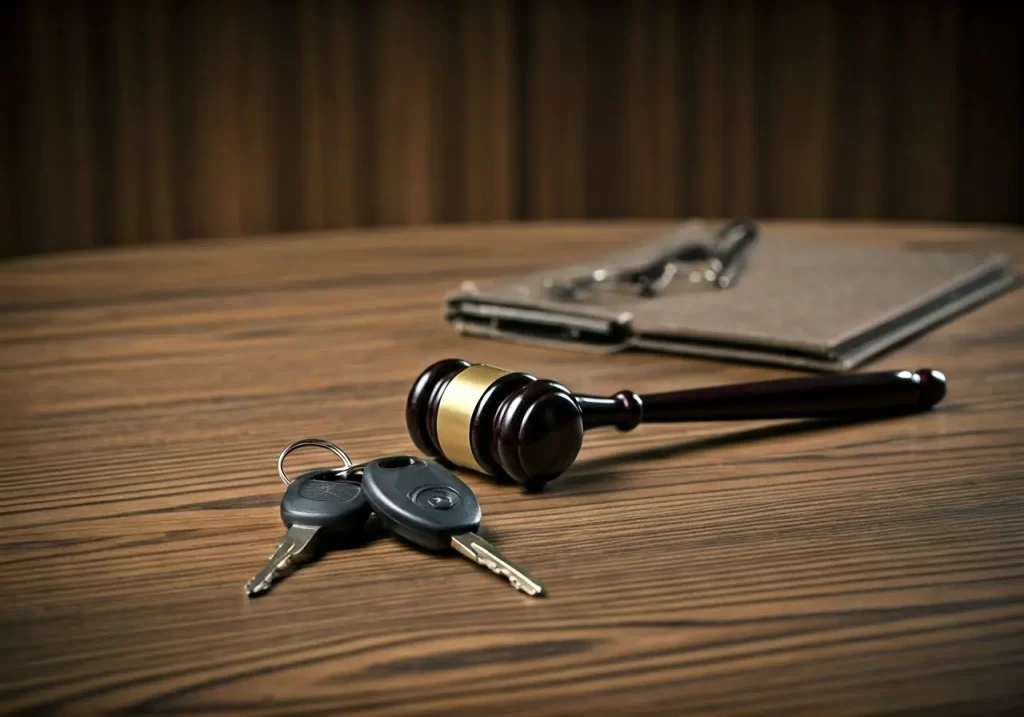DUI plea bargains are a confusing topic for many, often misunderstood due to common myths and misconceptions. In this article, we’re unraveling these myths to offer a clear picture of what DUI plea bargains truly entail. Whether you’re facing charges or simply curious, understanding the reality of plea bargains could make a significant difference.
1. Plea Bargains Always Mean Admitting Guilt
Many believe that accepting a plea bargain equates to admitting guilt. In reality, plea bargains can be nuanced and do not always require such an admission, depending on the agreement. For instance, some plea deals may include provisions like a ‘no contest’ plea. This allows the defendant to accept penalties without formally admitting guilt, which can be beneficial in civil lawsuits where an admission of guilt could be used against the defendant. Negotiation is key to getting the terms that best suit each unique situation.
Furthermore, the consideration of procedural fairness plays a role in plea deals. As outlined by Procedural Due Process Civil, the justice system must ensure equitable procedures, allowing individuals to negotiate pleas without necessarily implicating themselves in a crime. Such processes provide defense lawyers with the tools needed to advocate effectively for their clients’ best interests.
Accepting a plea bargain can also be a strategic decision to avoid the uncertainties of a trial. At times, it serves as the most pragmatic solution for the defendant, minimizing the risk of more severe penalties that might be pursued in a trial. In such scenarios, working with a skilled legal adviser is crucial for assessing the legal implications and understanding the rights preserved within a plea arrangement.
2. Plea Bargains Are Only for Minor Offenses
It’s a common misconception that plea bargains are only relevant to minor offenses. However, they are often available in DUI cases to avoid the uncertainty of a trial. DUI charges can carry significant penalties, including license suspensions, fines, and in some cases, imprisonment. Thus, defendants are often keen to negotiate plea bargains that reduce their charges to lesser offenses or minimize penalties.
Considering how crucial a driver’s license is for daily life, particularly in areas lacking robust public transportation, a plea deal might include reduced charges that don’t involve suspension or a reduced period of suspension. A comprehensive evaluation of the evidence by a legal expert, like those found at Criminal & DUI Lawyer in New Jersey, can help navigate such plea discussions effectively.
3. They Are Unfair to Defendants
Some claim plea bargains are inherently unfair to defendants. Yet, they can offer a strategic advantage by reducing charges or penalties under the right circumstances. For example, a well-negotiated plea bargain can avoid felony charges, keeping one’s record clear of severe consequences. This process can offer fairness by allowing defendants a semblance of control over uncertain situations.
The perceived unfairness often stems from a lack of understanding of the defendant’s procedural rights, which ensure the negotiation process is upheld to fair standards. A fair plea negotiation can potentially mitigate harsher penalties upon a conviction.
In essence, when a plea bargain is considered unfair, it might be indicative of a need for better legal representation or clearer understanding of the options available. Engaging experienced legal professionals ensures the plea bargain process remains as equitable and beneficial for the defendant as possible.
4. Prosecutors Are the Only Beneficiaries
A widespread myth is that prosecutors are the sole winners in plea bargains. On the contrary, defendants often benefit from more predictable and sometimes reduced outcomes. Plea bargains can offer substantial benefits such as reduced sentences or lesser charges, which is particularly important when considering instances where evidence might not clearly support a conviction.
When we delve into the motivations behind plea bargains, we see that prosecutors often offer them for the sake of efficiency. Courts are perpetually overburdened, and moving cases through plea bargains can alleviate heavy caseloads, allowing more focus on complex trials. Both parties can end up satisfied as the prosecutor can secure a conviction and the defendant reduces potential punishments.
It’s worth noting that the positive outcomes of plea bargains are affirmed by many defendants, as highlighted in Testimonials – South Jersey DUI. Here, clients reveal their satisfaction with the plea bargain process, indicating that the defendant’s opportunity to secure a fair deal speaks against the idea that only prosecutors benefit.
5. Public Defenders Cannot Negotiate Effectively
Some doubt the negotiating skills of public defenders in plea bargains, but many public defenders are skilled professionals who can proficiently negotiate favorable deals for their clients. Public defenders often have extensive experience in the courtroom and handle numerous plea negotiations. Their expertise is honed through frequent engagement with similar cases, allowing them to have a keen insight into reasonable plea terms.
The effectiveness of public defenders is often undervalued, yet they are frequently involved in cases that lead to reduced charges or sentences. For instance, they ensure that any plea deal aligns with the principles of Procedural Due Process, ensuring defendants are treated fairly and the outcomes agreed upon are just. While their caseloads can be heavy, the dedication and skill of public defenders can not be understated in successful plea negotiations.
6. All Cases Are Eligible for Plea Bargains
It’s a myth that every case can be resolved with a plea bargain. Eligibility often depends on the specifics of the case, the evidence, and the jurisdiction. Some jurisdictions have policies that restrict plea bargains for certain offenses, particularly severe ones, to ensure that serious crimes face the appropriate judicial scrutiny.
The dynamics of each case and the jurisdictional guidelines play a critical role in determining if a plea deal is viable. Complex cases or those involving recidivism might not be eligible for plea deals, necessitating a trial to uphold the due process underlined in the US Constitution Articles and Amendments.
In light of these constraints, it’s essential for defendants to seek guidance from lawyers skilled in local legal procedures to evaluate whether pursuing a plea is feasible. This is where understanding the legal landscape, such as offered by expert firms like those in New Jersey, becomes indispensable.
7. Accepting a Plea Bargain Equals a Clean Slate
Another misunderstanding is that once you accept a plea bargain, your record will be clean. In reality, the charges agreed upon often remain on your record, albeit in a reduced capacity. This means that instead of a DUI, one might have a misdemeanor or lesser offense recorded, limiting but not eliminating the impact on future licensure, employment, or insurability.
Understanding the post-plea impact on one’s criminal record is crucial. Even when the severe stigma of a DUI is mitigated, defendants need to be aware of the ongoing implications and work with legal teams to explore options for expungement where available, enhancing the possibility of a genuine clean slate.
8. Plea Bargains Are Set in Stone
Some people think plea bargains are immutable. However, they can evolve with new evidence or negotiations, demonstrating flexibility in the process. If new evidence becomes available that significantly affects the case, plea bargains can sometimes be renegotiated. Lawyers who are proactive, such as those found at Criminal & DUI Lawyer in New Jersey, understand the importance of revisiting plea deals when justified by changing circumstances.
Moreover, the transparency necessitated by procedural rights ensures that defendants can challenge deals they might have entered under duress, or where legal standards, as defined by the US Constitution, weren’t properly upheld. It highlights the dynamic nature of plea deals, reinforcing the need for informed legal intervention.


